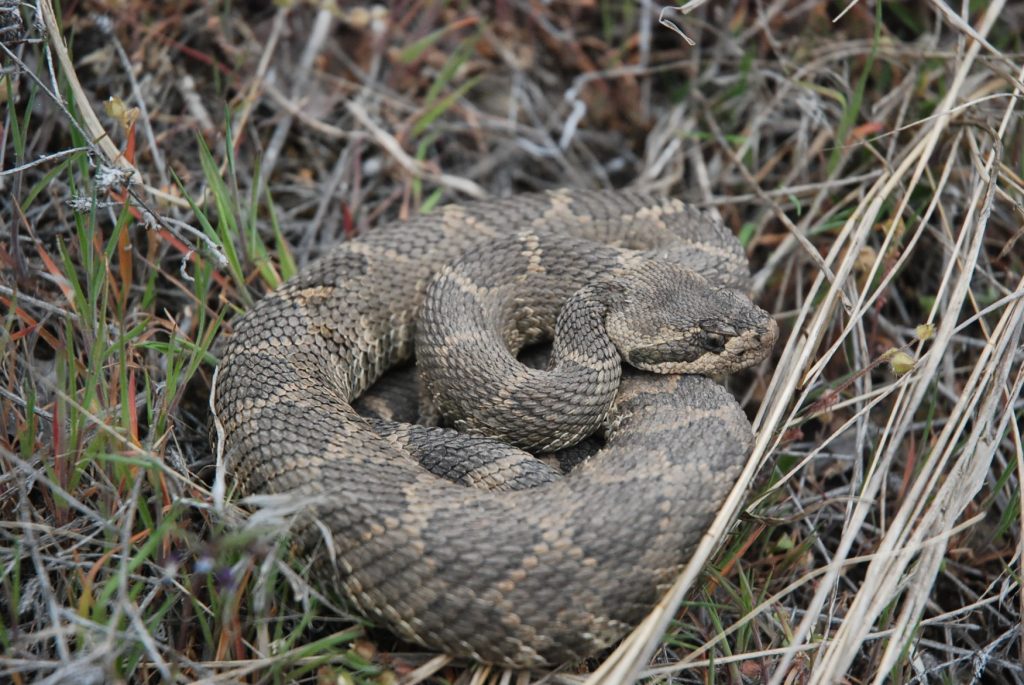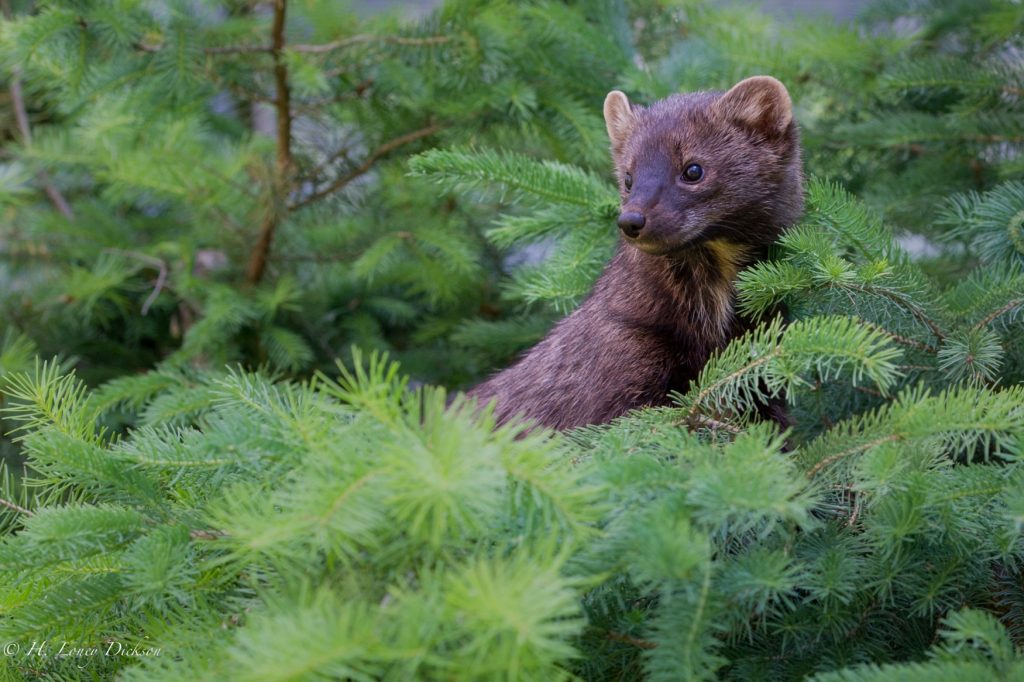
Dr. Karl Larsen, professor of Natural Resource Science, has been awarded the prestigious Northcote and Brink Professorship, and says the honour will benefit his students the most.
The professorship may be held for up to three years, and is valued at $10,000 annually.
Researching BC’s most vulnerable species

Larsen is a wildlife biologist, probably most well known in the region for research that explores the Western rattlesnake. Larsen’s students, graduate and undergraduate, can often be found out in the field monitoring rattlesnake dens and investigating the snakes’ migration patterns. They can also be found combing backroads looking for rattlesnake road kill. Research conducted in Larson’s lab has led to provincial changes in how we manage our landscape for the benefit of some of British Columbia’s most vulnerable species including spadefoots, badgers, turtles and, of course, snakes.
Read: Larsen, Ortner awarded for outstanding research mentorship
While he is honoured by the fellowship, he is also grateful for the financial flexibility it affords his lab.
Student researchers benefit from fellowship

“When students ask for small pieces of equipment, or for funds to publish findings, often that money can be hard to find. It is extremely valuable to have these funds at my disposal to handle small but important pieces that are always vital to research,” he said.
Several of Larsen’s current students have wrapped up their field work and are now compiling results, but he has several new students beginning in the fall who will continue making great strides exploring animal ecology. Larsen also is collaborating on a new project with provincial wildlife biologists using wildlife cameras to investigate the habitat associations of fishers. Fishers, according to Larsen, are “an enigmatic and cryptic species” of long-tailed carnivores. Similar to a weasel or a badger, but more arboreal, the fisher is only found in Canada and the Northern United States, and their numbers are in steep decline.
Impact of climate change on wildlife is catastrophic
There’s an urgency to the work being conducted in his lab, Larsen said, despite images that show blue skies reappearing over once-polluted cities due to the social isolation measures put into effect as a result of the global COVID-19 pandemic. The long-term climate trend is still bleak, and the impact of humans on wildlife will be catastrophic.
“We are losing wildlife at a phenomenal rate, and we need many smart young people to come into this field to hold the torch up and try to reverse the trend. We need people who are willing to put in time and effort. Wildlife populations are getting chipped away at an alarming rate, and as we increase our own footprint on the planet, we’re doing so at the expense of a lot of other species.”
The professorship is funded by the Dr. Tom Northcote and Dr. Bert Brink Endowment, established at TRU in 2005, and honours the contributions of Northcote and Brink to ecology in British Columbia. The purpose of the professorship is to expand TRU’s knowledge of the connection between restoration of ecosystems and the social benefits of the communities.
More information
Dr. Karl Larsen, Professor
[email protected]
 Police watchdog called in
Police watchdog called in Mayor calls 'BS' on list
Mayor calls 'BS' on list U.S. authorities find bodies
U.S. authorities find bodies Premier stands by pick
Premier stands by pick Canada's most-wanted list
Canada's most-wanted list Sask. will still get rebates
Sask. will still get rebates Santos ends comeback bid
Santos ends comeback bid Douglas C-54 plane crashes
Douglas C-54 plane crashes Trump's 'eyes and ears'
Trump's 'eyes and ears' US TikTok ban sent to Biden
US TikTok ban sent to Biden Phish fans enter the Sphere
Phish fans enter the Sphere CN Rail profits fall
CN Rail profits fall  Warriors snakebitten in loss
Warriors snakebitten in loss Iginla off to Europe
Iginla off to Europe Rockets ink prospect
Rockets ink prospect Alleged Tupac killer in court
Alleged Tupac killer in court Lawsuit accuses Megan
Lawsuit accuses Megan Bam Margera’s tour axed
Bam Margera’s tour axed



